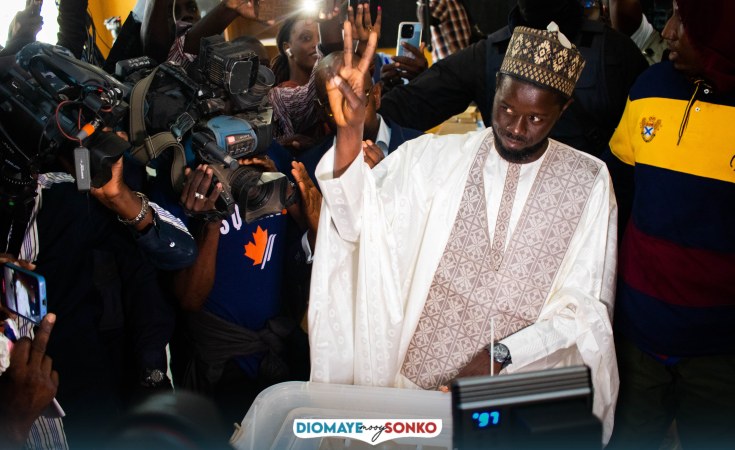Senegal votes on Sunday in a presidential election that is expected to be the most tightly contested in years. Before polls opened, a team of a thousand observers drawn from civil society was preparing to monitor the long-awaited vote.
In Dakar, Senegal's capital, a team of volunteers were stationed behind laptops, phones to their ears.
On the other end of the line were observers on the ground across Senegal, calling in in a rehearsal for Sunday's vote.
"We're looking at areas that don't have network coverage so that we can flag them up in the database, and see which observers are having trouble sending messages correctly," explained Khadija Mohamed, supervisor of the simulation exercise.
On the day of the vote itself, 500 observers will be stationed at polling offices around the country and another 500 will travel between sites to monitor the vote.
They'll be looking to see that voting opens on time and whether candidates are present at the count, as well as watching for any interference or irregularities that could threaten the credibility of one of Africa's most anticipated elections.
Tense political climate
First set for late February, the vote is taking place a month behind schedule in a tense political landscape.
President Macky Sall, who has reached the end of his two-term limit, unexpectedly postponed the election that will choose his successor in what the opposition claimed was a bid to cling onto power.
While Sall initially sought to push the vote back to the end of 2024, pressure from at home and abroad forced election authorities to set an earlier date.
The 19 candidates - the most to stand in any presidential election in Senegal yet - had just two weeks to campaign.
Credibility crucial
With results likely to be close, observers say it's crucial that ballots are verified.
"It's very important, given the extremely tense political climate that we're in at the moment," said Anta Faye Niang, project officer for the election support programme in Senegal funded by the US Agency for International Development (USAID).
A coalition of Senegalese civil society groups, known collectively as Cosce, is also involved in the observation mission.
"Civil society has a role to play in strengthening the credibility of the electoral process," Niang told RFI.
"By checking today that voting procedures are being carried out correctly, we'll be able to strengthen the public's confidence in the results that come out of the ballot boxes on 24 March."
Wide field
When polls open, field observers will report any incidents to the team in Dakar, who are responsible for compiling the data.
In France, home to a large Senegalese community, nearly 80,000 people are registered to vote at overseas polling stations.
The race is widely expected to go to a second round at the end of March.
The frontrunners include Prime Minister Amadou Ba, the ruling party candidate and Sall's preferred successor, and Bassirou Diomaye Faye, a stand-in for popular opposition leader Ousmane Sonko, who was barred from running over legal charges that he disputes.
Veteran politicians Idrissa Seck, a former prime minister under Sall's predecessor, and Khalifa Sall - a longtime opposition leader and no relation to the president - are also expected to do well.
Only one woman is running: Anta Babacar Ngom, an entrepreneur and first-time candidate.


